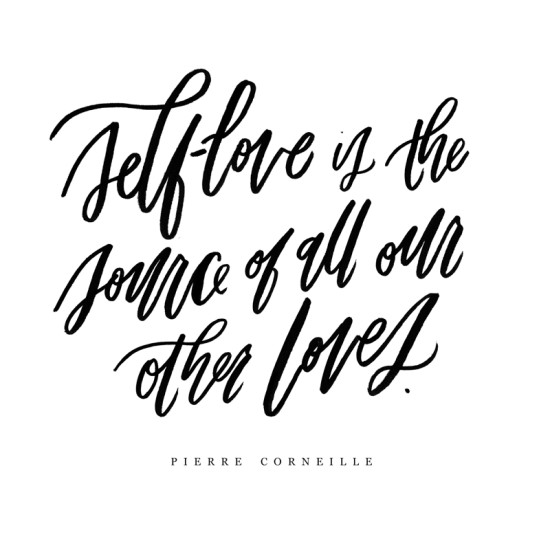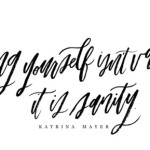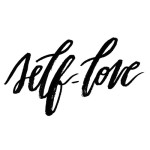This week we have another thoughtful post from Courtney. Marzia chose the quote, and it inspired Courtney to go digging for the answer to one of the toughest questions out there.
Where does love come from? What a big question. The quote above suggests that we can only love others (other people, other things, other activities) once we love ourselves. Different religions suggest that our love comes from a higher being, a creator. Science suggests that love comes from a complex process that takes place in our brain, electric signals jumping from neuron to neuron, lighting us up on the inside.
Last month, I took an online version of the Meyers-Briggs test to see what kind of personality type I am. I got INFJ-A, one of the rarest types out there. The letters stand for Introvert, Intuitive, Feeling, Judging, and Assertive. We’re described as “quiet and mystical, yet very inspiring and tireless idealists” (source). I identified strongly with their longer, more detailed description of my personality, which stated that we trust our intuition but balance it with organization and structure, constantly categorizing and picking out patterns to help us make sense of the world. I also identify strongly with my zodiac sign, Pisces. I wrote a whole post about it on my personal blog, which you can read here. Basically, Pisces are known for following their emotions rather than their logic. We trust our gut instincts, even when those instincts seem to go against everything and everyone else around us. We trust that we know ourselves better than anyone else, and we will always make decisions that align with a powerful inner truth.
So when I ask myself, “Where does love come from?” it feels like a deep, impossible-to-answer question.
I’ve read the quote several times, but it doesn’t ring out with truth inside me. I recognize that in order to love anyone or anything in a healthy, productive way, we must love ourselves. When we love ourselves, that loves comes shining out like confidence, like happiness, like a glowing inner beauty. Other people are drawn to that because they want it, too.
But where I start to have questions is when I think, “Well, what about the people who don’t have much self-love? Does this mean they’re unable to truly love other people, or God if they believe in a God, or the earth, or a hobby, or any other thing they claim to love?” That doesn’t feel right to me. And like I said above, I trust my feelings very much.
I believe the answer is much more complex. Self-love isn’t one single thing. I believe we can love parts of ourselves, and those are the shining parts. I can love writing because I love the part of myself who’s a writer—the smart, perceptive, poetic part of me. I can love my family because I love the part of me that came from all the hours and minutes we’ve spent laughing and growing and crying together.
But there are parts of myself I’m not wholly in love with, parts I want to make better, parts I struggle to accept, parts that I’m afraid of. I think we can’t exist without these parts we don’t love because they are what force us to grow, to change, to evolve. There’s always something to improve. Humans are not stagnant or perfect beings. Therefore, love is not a stagnant or perfect emotion—especially not self-love.
I’ve never met a single person who’s a picture of complete and total self-love because I don’t believe that person exists. Maybe it’s that, for me, the quote is too simplistic. It distills an idea that I don’t feel can be distilled.
What about you? Do you agree with Corneille’s quote? Or do you interpret it in a different way?
Click the icons below to join our mailing list and download these quote graphics for free!







